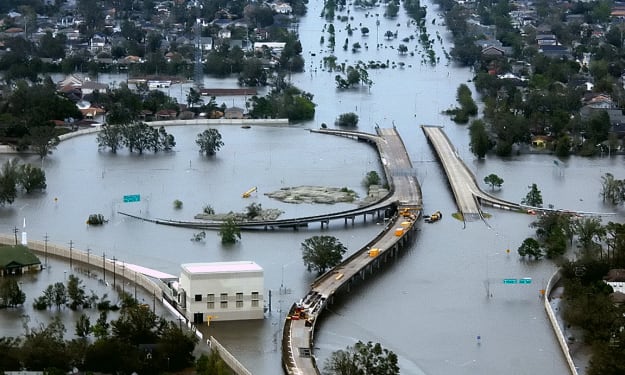Don't Forget About Pensacola Beach
One of America's Most Beautiful Beach Towns, for Now

Don't Forget About Pensacola Beach
Schools of small fish pluck barnacles from the post of the dock, while big fish scurry below. Scraps of grass float in from the other end of the bay, taking with them tiny crustaceans. The waves are gentle, and the tide is high. The salty water feels cool on my dirty feet. In the distance, I see a few paddle boarders paddling above the sandbar in the middle of the bay. A fish breeches the surface, gobbling up plankton on the way up. In the far distance, a boat named "Southern Charm" heads towards the canal, its inhabitants eager for the space to pick up speed. Buoys bob, informing boaters that a sandbar is aflutter with string rays dwelling beneath. On the other side of the bay, restaurants, bars and hotels inhabit the horizon.
Such is life among a tourist beach town. Idyllic and tranquil. Yet, this may change. This place was once wild and empty; now, a sheen of oil glosses over large swaths of the bay. Plastic bottles and bags get stuck on posts. Beer and soda cans clog the shore. It is polluted, but the wildlife still inhabits the bay. Perhaps in the future, as more tourists seek this divine place, the amount of litter and pollution will grow. The tourists, ignorant of their significance, trample on the sea oats that keep this island intact. This island may erode, until it is swallowed whole by the Gulf of Mexico.
And I sit here, dwelling on the value of things, doing little. This is my grandmother's dock, that leads to my grandmother's home, one of the very first buildings erected on this once isolated place. It is on the smallest houses in the neighborhood, the others were torn down, sold, and built over with sprawling luxurious plantation-style homes. Our home is the heart of the family, the place where all of us had lived at some point in time. My mother and I lived here for a time, trying to restart our lives after a near-divorce, and the era-ending Katrina. My uncles and cousins lived here too, after financial downpours and lulls in life. God himself can't tear this place down; dozens of hurricanes and tropical storms have attempted and failed. My grandmother's second marriage was conducted on the dock, decades of Independence Days and Thanksgivings were celebrated. Many Blue Angel Weekends were spent on the patio, watching the screaming symbols of America perform loop-di-loops. Our family bleeds Pensacola Beach. We are the natives of this place, if they can exist at all. Does this place belong to us any more than it belongs to tourists? Does it belong to anyone at all?
Bottlenose dolphins still visit this area, too. On certain hours of the day, they swim right outside the dock. They prowl the waters, hunting mullet and chatting, breaching the surface for air ever so often. Dogs bark at them, while natives and tourists alike gaze in wonder. The dolphins are either ignorant or indifferent of the gas and garbage. They do not visit on the perfect summer days, as the bay is often too congested with boats for them to fit in.
As long as the dolphins play in the bay, this area still has value. It is still beautiful; tourists would not come if it wasn't. The sand is still pearly white. The oil spill has been cleaned, leaving nothing but the emerald water. Seldom do chunks and bits of oil wash up upon the beach. Fish still swim, oysters still purify. The sun still sets behind the banks of the rocking waves. There may be hope yet. A host of environmental initiatives have sprung up, such as light-pollution reduction measures. The Island Authority taxes tourists and locals alike to fund them.
Then again, there are several threats to these measures, too. The Environmental Protection Agency is currently a mere shell of its former self, the head of which is a denier of climate change. Restrictions on development are not permanent—if the government decided to sell off the wild uninhabited dunes, home to a variety of endangered species like beach mice and owls, there would be nothing to prohibit investors from building on them. Another oil spill could easily occur, as the states along the Gulf Coast are more than willing to eliminate restrictions on offshore oil rigs. The ignorance of "drill, baby, drill" is still prevalent among those in charge of the government. Little is being done to stop them, and those that do are labeled as "cowardly liberals." Worse things can happen to the beach. Worst things will happen to the beach if the people who live there do nothing to save it.
For now, the dolphins still hunt for prey in the emerald waters of Pensacola Beach. The sand is still sugar white, the shells still wash up on the shore, and the shoals of rays crowd the deep. All of these fragile things will vanish, and the beach will die. Those who vote to destroy this beach, or allow those who are willing to do so without hindrance, do not deserve to live here. Those who leave litter on the beach, tarnishing one of the most beautiful places on Earth, do not deserve to visit. The beach does not belong to these people, they are mere colonizers reincarnate. In short, the beach belongs with its guardians and keepers, not its exploiters and profiteers.
About the Creator
Layne Radlauer
Heyo, I'm Layne. I write poems, short stories, and creative nonfiction. I'm a fan of science-fiction, horror, and all of that type of thing. I've got a BA in English from Penn State, and I live in Santa Fe, NM.






Comments
There are no comments for this story
Be the first to respond and start the conversation.